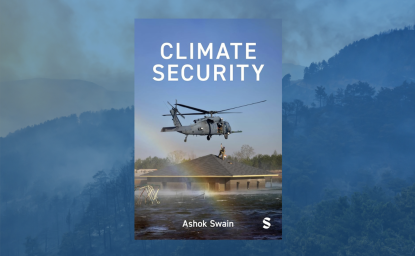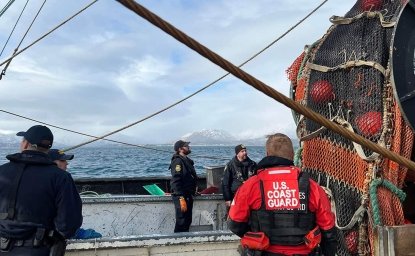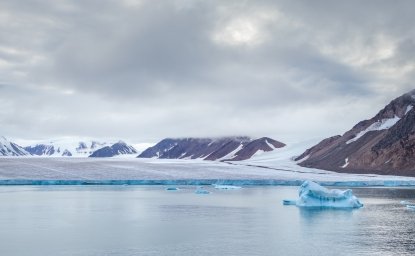When Chancellor Olaf Scholz stood before Germany's parliament on Sunday, February 27, he'd been in office less than three months. His coalition government had just negotiated a hard-fought policy agreement designed to keep its potentially fractious parties in line. Now that agreement faced the test of war. Putin's invasion of Ukraine on February 24 brought combat to within a thousand miles of Germany's border. It was even closer to some of Germany’s NATO allies. The peacetime assumptions behind the coalition agreement were shattered.
Scholz has never been famous for his rhetorical style. Pragmatic, practical, professorial – that's his political image. Since drama wasn't his way, every word in his speech would count. The word that stuck was Zeitenwende. Translated into English: a watershed moment.
With that word, Scholz defined a new era in Germany. He also began an extended language lesson. Germans needed to re-learn the language of defense, of capabilities, of readiness, of deterrence. The language of war.
It's a language Cold War Germany understood. NATO was West Germany’s defense. The lesson of two World Wars taught Germans a deep-seated distrust of the military. So West Germany embedded itself within the consensus constraints of a multilateral alliance and invested in it. West Germany would only act with its NATO Allies, never alone.
After reunification, after the departure of Soviet troops from East Germany, after the end of the Warsaw Pact, Germans realized their country was no longer a potential conflict zone. Their nine neighbors were either Allies, partners, or potential partners as NATO and the EU expanded. NATO remained central to Germany's defense. But how much defense was needed in this new geography? Especially when the cost of Germany’s reunification was growing?
Already more comfortable with the language of trade and finance than the language of defense, Germans gradually lost their fluency on hard security and defense issues. Some policymakers, parliamentarians and pundits retained it – but few learned it from scratch. For the German public, it became a niche language, spoken largely by experts.
But no longer.
On February 27, Scholz bluntly called Putin a warmonger. He told his parliament that to stand by NATO’s collective defense commitment, Germany’s army needed new capabilities. He proposed a special fund of 100 billion Euros for military spending, and pledged to meet the NATO defense spending pledge of 2 percet of GDP. It was a standard Germany had missed and dismissed; now, Scholz emphasized, Germany would take this step not to satisfy its Allies, but “for our own security.” He namechecked the needs: combat aircraft, Heron drones, the F-35, the Eurofighter. This kind of advocacy would once have led to hefty debate. Not this time.
Scholz isn’t the only one speaking the language of security; his Cabinet is, too. Green Party Foreign Minister, Annalena Baerbock was tough on Russia during last year’s German elections. In an October speech, she focused not only on Putin’s war but also on Germany’s first National Security Strategy (to be published in February 2023). “We are realigning our European and transatlantic defense capabilities,” she emphasized. That meant supplying Ukraine with arms, training Ukrainian soldiers, equipping the German army so it could provide security to the Baltic and central European states, promoting European armaments cooperation. It also meant dealing with threats to infrastructure and data networks.
And on October 28, German President Steinmeier weighed in. A Social Democrat like Scholz, he was Foreign Minister between 2013 and 2017 as Germany’s energy dependence on Russia deepened. Even after the Russia’s invasion of Crimea in 2014, Steinmeier advocated dialogue with Russia.
But on October 28, Steinmeier reversed himself – in the language of security. He’d just returned from a long-planned visit to Kyiv (the Ukrainian government had turned down an April visit). He began his speech with a picture: of rockets falling on Kyiv. Putin’s actions, he emphasized, brought Germany into “a different time . . . a time marked by war, violence and displacement, by concerns that the war would spread across Europe like wildfire.”
It was a wide-ranging speech, stressing resilience and community in tough times. But early and deliberately, Steinmeier told Germans that to defend their nation and their Allies, Germany needed a strong and well-equipped army – and the army needed the respect and support of German society. As “the strong country at the heart of Europe” Germany had a duty to meet. Germany needed to become capable of handling conflict.
Steinmeier knew his audience. Sanctions, supplying weapons for war: “nothing about it is compatible with our previous visions of peaceful coexistence,” he acknowledged. But a “peace that rewards acts like this, a peace that seals Putin’s land grabs, is no peace.” Steinmeier told Germans “we must cast off old ways of thinking and old hopes” about German-Russian relations. In doing so, he put himself – and his own earlier Russia policy – in their disappointed ranks.
Steinmeier’s speech put the past behind and stepped firmly into the Zeitenwende. But other steps are needed: concrete action to get needed arms to Ukraine more swiftly, rapid procurement to fill long-recognized readiness gaps in Germany’s own armed forces, and a comprehensive domestic communications initiative to ensure long-term support for a robust National Security Strategy.
In a drastically changed threat environment, Germans are re-learning the language of defense. As with any language lesson, it will take practice – and commitment.
Author


Global Europe Program
The Global Europe Program is focused on Europe’s capabilities, and how it engages on critical global issues. We investigate European approaches to critical global issues. We examine Europe’s relations with Russia and Eurasia, China and the Indo-Pacific, the Middle East and Africa. Our initiatives include “Ukraine in Europe”—an examination of what it will take to make Ukraine’s European future a reality. But we also examine the role of NATO, the European Union and the OSCE, Europe’s energy security, transatlantic trade disputes, and challenges to democracy. The Global Europe Program’s staff, scholars-in-residence, and Global Fellows participate in seminars, policy study groups, and international conferences to provide analytical recommendations to policy makers and the media. Read more

Explore More
Browse Insights & Analysis
Defense of the Arctic: 10 to 2 O’Clock



